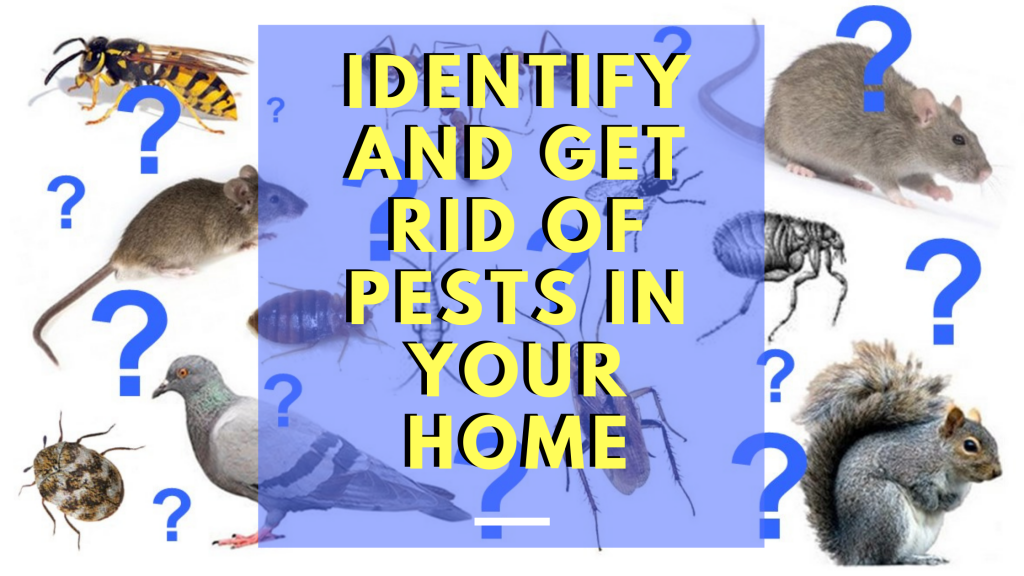
Whether it is mice, rats, cockroaches, silverfish or pharaoh ants, pests we get in Ireland can devastate your home and even your health.
Pest detection and eradication are paramount because if pests are not detected quickly, they will multiply and cause structural damage to your home, with huge costs to rectify the issues.
In order not to compromise your most significant asset and the health of your family it is important to know how to identify and control pests.
Types of Pests in Ireland
There are a number of invasive pests in Ireland. Some pests thrive in a warm climate and humid environment, so they will prosper in your kitchen or bathroom. Some others may also come inside your home in the winter to seek warmth.
Rodents
The Norway rat or house mouse can eat your insulation or gnaw on electrical wires, which leads to costly repairs or even house fires.

Rats and mice have the habit to hide and build nests in walls, basements or attic space. Grey squirrels also nest in attics if they find access, making a lot of noise and producing numerous smelly droppings every day.
Insects
Insects like woodworm can destroy your home’s subfloor rafters or attic beams. After identifying such wood-loving pests which are a threat to your home, you should have them exterminated as soon as possible.
Other house pests include stinging/biting insects such as fleas, bedbugs and wasps. Bigger animals like pigeons, seagulls, or foxes can become a nuisance if they settle in or around your house.
How is Your House Affected by Pests?
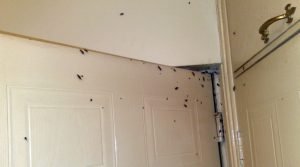
Different pests affect the integrity of your house in a variety of ways. Birds, small mammals and rodents may only infest your home temporarily, while some others such as silverfish cockroaches or bedbugs will reside in your home permanently if the initial conditions remain.
It is paramount to identify how pests can affect your home in order to ensure the most appropriate course of action.
Risk of Structural Damage to Premises / Property
Pests can cause minor or severe damage to any premise/residence, depending on the type of pest intruder:
Rodents
Rats and mice accessing cavity walls or attic spaces love to chew on insulation, which can over time seriously compromise the heating in your home.
Rodents’ sharp teeth as well as other animals allow them to chew through wiring, which can result in an electrical short & in the worst-case scenario a house fire.
Mice gnaw on any fabric available & take it to their nesting area to line their nest e.g. cushions or building insulation.
A qualified pest control company can carry out treatments to arrest & prevent further damage.
Insects
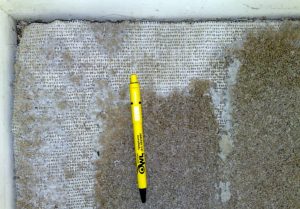
Wood-boring insects & bugs that feed from wood like woodworm can compromise your floors or roof. These pests will chew on any wood fabric in your home e.g. windowsills, baseboards, and more. The damage caused by these pests can be very costly & therefore it is important to react as soon as the problem is noted.
Other pests that can affect furniture and fittings in your home are Clothes Moths & Bed Bugs as they can cause severe damage to fabrics & upholstery, i.e. holes.
Damage to Private Garden Areas
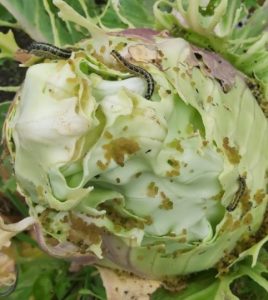
Pests can also do costly damage to your garden as well as your residence. It is an important element of the maintenance of your garden to be aware of potential pest intruders.
Garden Bugs
Some species of beetles can harm trees & shrubs, while worms are responsible for regularly eating and destroying vegetables and fruits. Rodents, rabbits and even deers can deplete vegetable gardens very quickly. Aphids, tiny pest insects, also destroy plants & vegetation found in the garden. As part of your garden maintenance, routinely inspect plants / vegetation in your garden & take the necessary action if you note any evidence of pest activity before the situation goes out of control. Natural products such as Diatomaceous Earth can help.
Are Pests Harmful to Your Health?
It is important to note that pests can be harmful to your health as well as cause damage in your home or garden. e.g.:
Disease
Rodents (Rats & Mice) carry a variety of diseases, including typhus and hantavirus, which are extremely dangerous to your health. The disease can spread to humans through the droppings and urine of rats or mice, as well as bites from fleas.
Some Insects carry diseases like West Nile (mosquitos) and E. coli (flies). Cockroaches, which have become a more widespread issue in later years are responsible for spreading diseases to humans, e.g. salmonella and dysentery.
Allergic Reactions
Bugs like Wasps, Bees, Spiders, can be a risk to your health. If you are allergic to wasp/bee or hornet stings, the consequences can be deadly. Insects that bite or sting can also cause numerous symptoms, including rash, burning, itching, and swelling of the skin.
If you already suffer from allergies, pests can exacerbate the issue e.g. Dust mites are a common cause of indoor allergies in humans. Pest saliva, faeces, and urine aggravate symptoms of asthma and allergies especially in the more vulnerable e.g. young children & the elderly.
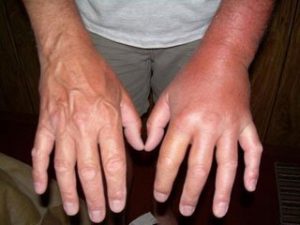
Pets with pests
It is very important to have your pets treated for fleas on a regular basis. Fleas, as well as ticks, can make your pet’s life miserable as they agitate their skin making them uncomfortable & itchy in some cases making them anaemic.
Identifying Signs of Pest Activity
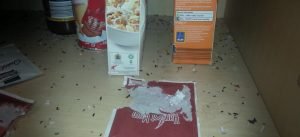
Understanding the origin of pest activity is paramount to make sure you effectively keep your home pest-free. Chewed food wrappers or tiny breadcrumbs left behind are signs that you have unwanted rodents in your home.
Finding Pests
You may try the following to notice some pest activity in your home:
- Undertake regular visual inspections of your house for seasonal pests like cluster flies that want to hibernate in your attic in the winter or wasps who start their nest every April-May.
- Pests tend to hide in cracks, openings, dark areas of the house or humid areas, such as your bathroom or under your ground level floorboards. Observe these areas for the presence of pests on a regular basis.
- Rats and mice like to hide and make their nests in attics and wall cavities, whereas insects are more likely to be found directly in foodstuffs in your kitchen cabinets (e.g. biscuit beetles or moths) or at the bottom of your bin (e.g. Fruit flies).
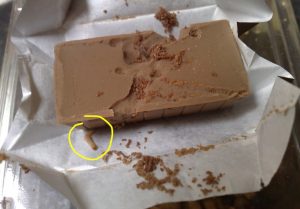
- If you know what attracts pests it can help you keep them away: you should place all fresh food in the fridge. Clean your cabinets and sink regularly to remove food debris, smudge and sticky residue, which are a major attraction for a number of different pests.
- Fabrics or carpets with little holes or chew marks in them may be another indication that your home has pests, e.g. Clothes moths or Carpet beetles. Little mounts of sawdust on the rafters in your attic most likely indicate that you have a woodworm problem.
- Unusual noises, tiny droppings or bad smells like a strong odour of urine are frequent indicators that pests are living in the vicinity.
Say Goodbye to Pests with Pest Control solutions
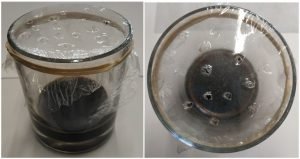
If you find pests in your home there is no reason to panic. There are many ways to deal with virtually any known pest. If one method does not work you can try another one until you finally discover the solution that works for you.
Identify a solution that your budget can accommodate: having a monthly professional pest control inspections will cost you more, but also it will give you complete peace of mind. If you can’t or don’t want to spend too much money, look into online DIY pest control products or some natural pest products alternatives instead.
I want to Buy DIY Pest Products
Pest Control Tips
When it comes to getting rid of pests, you do not have to use toxic or harmful chemicals. There are plenty of green alternatives that you can use, such as spring traps for rodents or glue board traps for insects.
Insects can also be kept away from your garden or home using some essential oils. Proofing your home by sealing windows, doors, cracks and any other entry points where pests can intrude is also an efficient way to keep pests at bay.
Sanitation
Finally, maintaining a clean home is one of the best ways to ensure it remains pest-free:
- Vacuum regularly and sweep up food crumbs after meals or pet feeding.
- Never leave your bin bags indoors for too long.
- Use sealed containers to store your dry food so pests cannot chew through or enter the packaging.
- Often wash the floors of your kitchen and bathroom.
- Wash bedding and linens regularly.
Annoying pests will not like your home if you keep it clean.
Get Rid of Pests Forever
Thorough and regular cleaning will help you keep pests away, but there are other things you should not forget to ensure your home remains safe and pest-free.
Look for signs of pest infestations so you can act before things get out of control. Consider the help of a pest control professional to help you exterminate dangerous pests and get advice to keep them away for good.
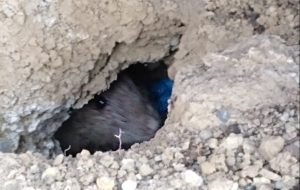
Focus your attention on the different pests that may potentially get into your home as seasons change. When you have a good understanding of pests it is much easier to prepare yourself and fight them when you spot them.
(credit: porch.com)


